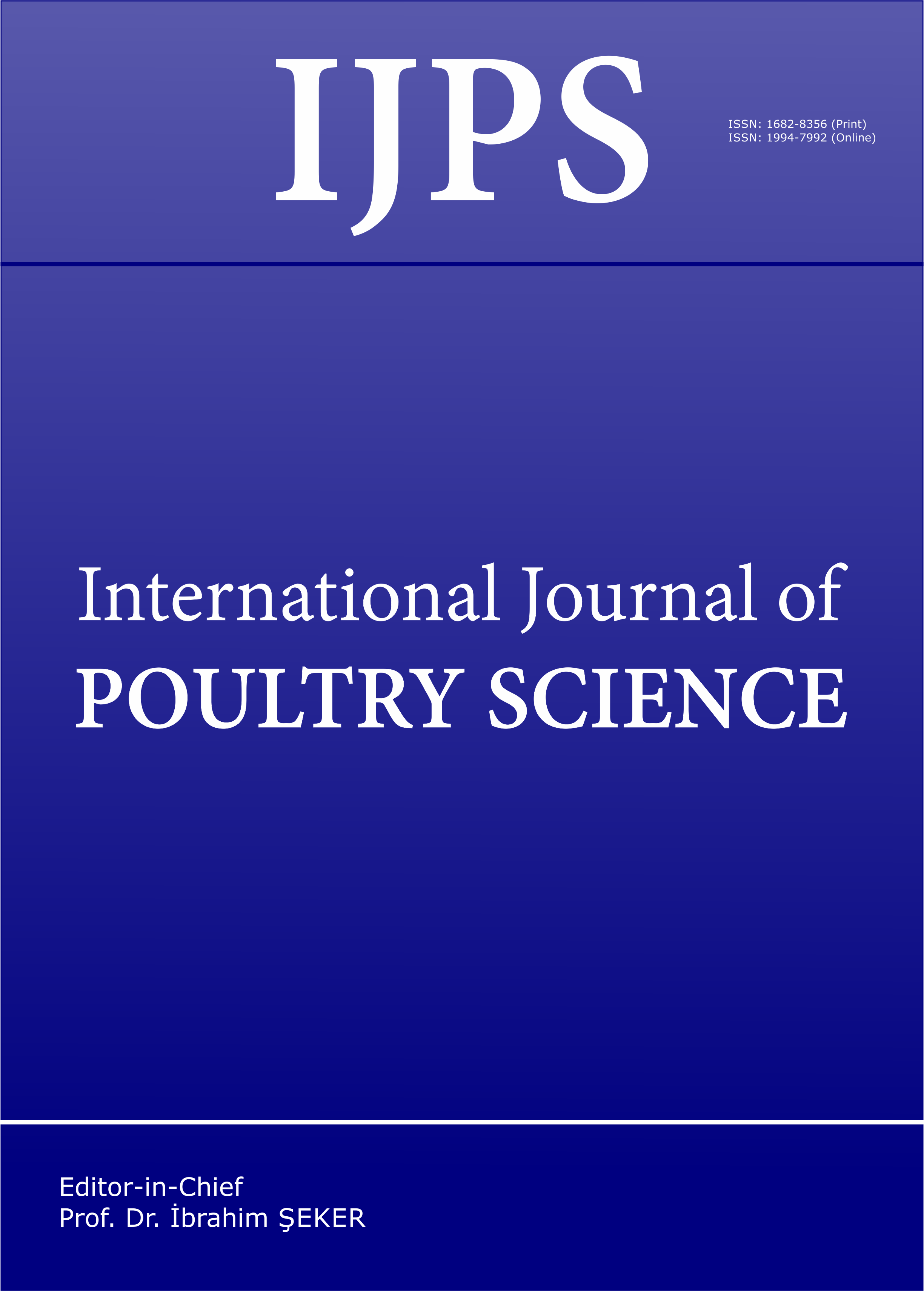Role of Maternal Antibodies in Protection Against Infectious Bursal Disease in Commercial Broilers
DOI:
https://doi.org/10.3923/ijps.2003.251.255Keywords:
IBDV, maternal antibodies, vaccinationAbstract
Chicks from broiler breeders with known Infectious Bursal Disease Virus (IBDV) vaccination history were examined for residual maternal and experimentally induced antibodies and their role in protection against IBDV. Maternal antibodies in unvaccinated chickens persisted in chicks up to 21 days as determined by ELISA with complete decay by 28 and 35 days. Experimental challenge with live IBDV protected chicks up to 14 days and resulted in 10 to 20% mortality thereafter. However, a group vaccinated with Bursine-2 and challenged with IBDV exhibited mortality in the first week post hatch and followed by complete protection until 8 weeks. These studies suggest that while maternal antibodies against IBDV persist and may protect chicks during the first 14 days of age, they may also interfere with earlier vaccine-mediated protection. Depending upon the flock IBDV antibody status, a customized vaccination regimen may be crucial for complete protection.
Downloads
Published
Issue
Section
License
Copyright (c) 2003 Asian Network for Scientific Information

This work is licensed under a Creative Commons Attribution 4.0 International License.
This is an open access article distributed under the terms of the Creative Commons Attribution License, which permits unrestricted use, distribution and reproduction in any medium, provided the original author and source are credited.

